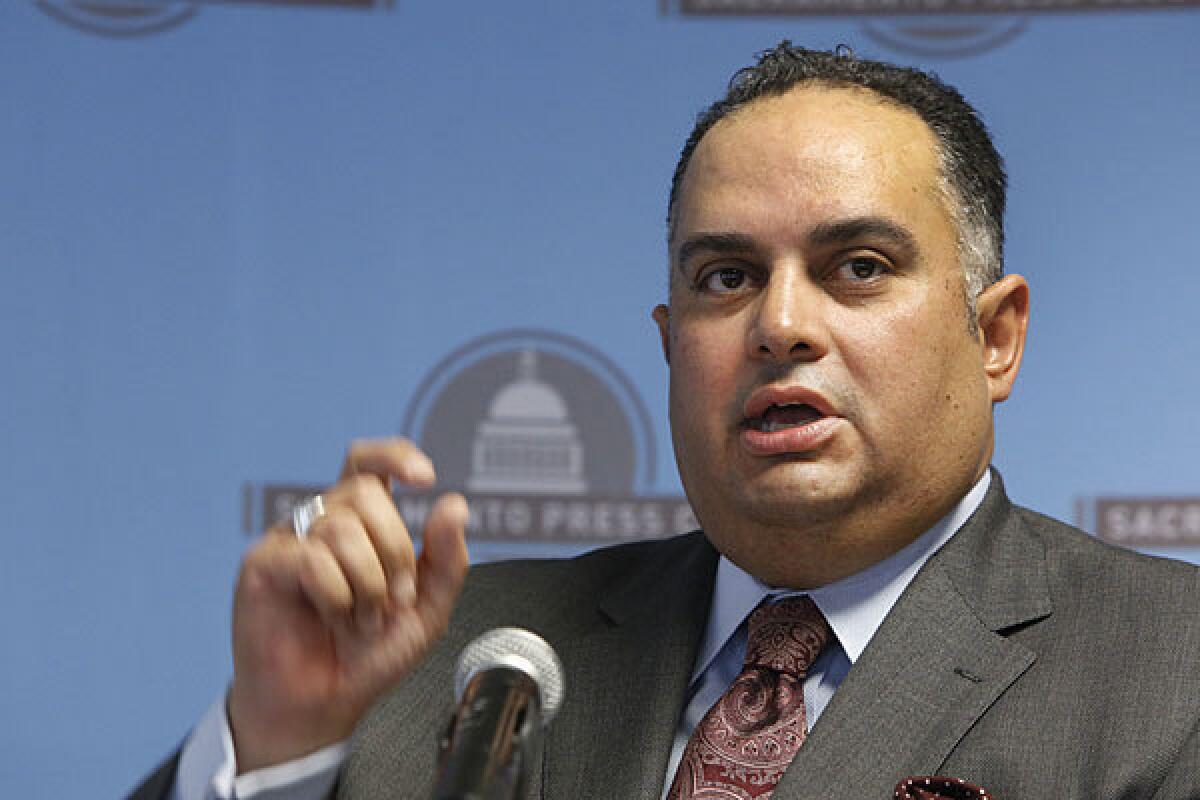Veterans home-loan bond money going untapped

- Share via
SACRAMENTO — In the last century, Californians have said yes to every request for money to help veterans buy homes.
Since 2000, they have signed off on $1.4 billion in bonds for that purpose. But most of that money remains untapped.
In fact, the state’s home loan program for veterans, run by the agency known as Cal-Vet, is doing less and less each year to help servicemen and women returning from Iraq, Afghanistan and elsewhere. Yet there’s more money available for the program than in the agency’s annual operating budget.
The nearly idle program has become a symbol of government inertia in the face of a festering social problem. The home loan service has changed little since it was created to help Californians returning from World War I. Meanwhile, resources that could help veterans with a wide range of other issues are hard to come by, said Michael Blecker, executive director of the San Francisco-based nonprofit Swords to Plowshares.
Organizations like his, Blecker said, “have had to work with crumbs” while the state has let hundreds of millions of dollars lie unused. Demand for the loans is low because veterans can find better mortgage rates on the open market, so more than $1.1 billion in bonds remain unsold.
By law, the money can be used only for loans for houses, condominiums, mobile homes and farms. If the rules for using it were modified, activists said, the state would have access to cash it needs to better integrate veterans into life back home with job training, mental health counseling and short-term housing.
“We know there’s a significant population of vets who need those services, who would like those services, who would benefit from those services, who cannot stabilize themselves in a program that is limited to single family housing and farms,” said Assembly Speaker John A. Pérez (D-Los Angeles).
He is pushing a plan to redirect $600 million toward loans to finance construction of low-cost apartment buildings and other housing where veterans can live and receive counseling and other services. If the Legislature approves his proposal, it will be placed on the November 2014 ballot so voters can consider the new terms for using the bonds.
Activists have been frustrated that so much money has been dedicated to home loans at a time when California has so many homeless veterans — almost 16,500, half of them in Los Angeles County. A state report says one in four nationally live in California.
The loans are out of reach for veterans like Spencer Bell, who served with the Marines in Vietnam and is now unemployed and homeless in Sacramento.
He keeps electronic copies of his military papers on a flash drive tucked away in his insulated coveralls just in case he’s able to apply for any housing programs. But since his only income is from Social Security, there’s nothing he can afford.
Bell, 64, said many of the younger veterans he encounters on the streets are struggling with drugs or mental health problems and need shelter and counseling.
“They have bad dreams at night,” he said. “I overcame mine.”
As far back as 1998, a report from the legislative analyst’s office said the veterans loan program was losing its usefulness and criticized Cal-Vet for having done “no analysis of veterans’ needs.”
Congress was also slow to respond. It wasn’t until 2008 — seven years after U.S. forces arrived in Afghanistan, and five years after the invasion of Iraq — that federal rules governing the use of the tax-free bonds were changed. That allowed California’s home loan program to be opened to those who served after the Vietnam War.
With eligibility expanding, state officials expected an influx of new applicants. The program had proved useful in the past, providing at least 420,000 loans over the years.
“The veterans deserve it. They deserve any break and every break that they can get,” then-Gov. Arnold Schwarzenegger said in 2008.
California lawmakers voted unanimously to place the $900-million borrowing measure on the November ballot that year, and for the 27th time, voters approved the sale of bonds to fund the program.
But around the same time, applications for the loans plummeted. “The economy blew up and the housing market went in the tank,” said J.P. Tremblay, Cal-Vet deputy secretary for legislation and communications. “People were not buying homes.”
None of the bonds approved in 2008 have been sold. Almost half of the $500 million approved in 2000 also remain unsold. Just 112 loans were approved last year, down from 1,059 in 2008.
“We’ve gone about as far as you can go under the restrictions and limitations that we have,” Tremblay said.
As the housing market recovers, Cal-Vet expects more veterans to seek its loans, Tremblay said, and the agency plans to sell some of the bonds later this year.
Redirecting some of the loan money as Pérez proposes could require up to $40 million a year in general fund spending, according to the speaker’s office, because the program would not be fully funded by loan repayments.
The current home loan service is self-sustaining, because veterans’ loan repayments cover all the costs of the program.
More to Read
Sign up for Essential California
The most important California stories and recommendations in your inbox every morning.
You may occasionally receive promotional content from the Los Angeles Times.











